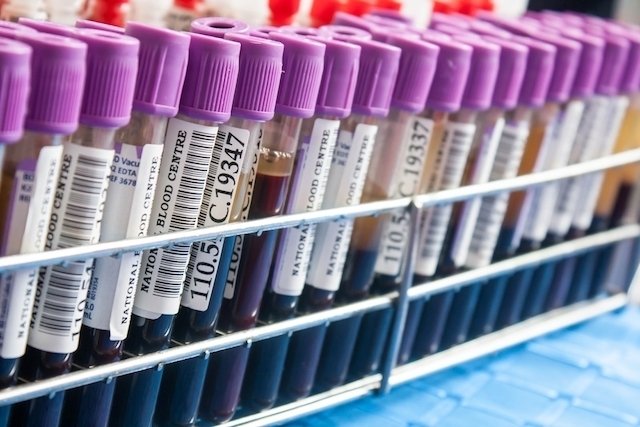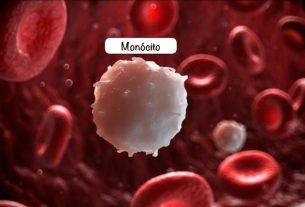Myoglobin is a protein responsible for transporting and storing oxygen in the muscles, promoting its release when necessary, as happens during physical activity, for example.
Myoglobin is a protein found in striated muscles, including heart muscle. Thus, any situation that compromises the muscles can also cause the release of myoglobin, increasing its concentration in the bloodstream.
The myoglobin test is carried out to identify the amount of this protein in the blood, being useful in the diagnosis of muscle and/or heart injuries, in which the levels of this protein begin to increase in the blood 1 to 3 hours after the injury, reaching a peak between 6 and 7 hours and returns to normal after 24 hours.

What is the exam for?
The blood myoglobin test is indicated when there is suspicion of:
- Muscular dystrophy;
- Severe blow to the muscles;
- Muscle inflammation;
- Rhabdomyolysis;
- Seizures;
- Heart attack.
This exam makes it possible to evaluate the functioning of striated muscles, as the presence of this protein in the circulation is indicative of muscle damage, including heart damage.
Although the myoglobin test can be used when a heart attack is suspected, the test currently most used to confirm this diagnosis is the troponin test, which measures the presence of another protein that is only present in the heart and is not influenced by other muscle injuries. . Find out more about the troponin test.
Furthermore, if the presence of myoglobin in the blood is confirmed and it is very high, a urine test can also be carried out to assess kidney health, as very high levels of myoglobin can cause damage to the kidneys, impairing their functioning. .
How the exam is carried out
The main way to perform a myoglobin test is by collecting a blood sample, however, in many cases, the doctor may also ask for a urine sample, as myoglobin is filtered and eliminated by the kidneys. For any of the exams, it is not necessary to do any type of preparation, such as fasting.
What does the result mean
The normal result of the myoglobin test must be equal to or less than 0.15 mcg/dLsince in normal situations myoglobin is not found in the blood, only in the muscles.
However, when values above 0.15 mcg/dL are found, the exam indicates that myoglobin is high, normally indicating a problem with the heart or other muscles in the body and, therefore, the doctor may order further tests. specific tests such as an electrocardiogram or cardiac markers to arrive at a more specific diagnosis.
High levels of myoglobin can also be a sign of other problems unrelated to muscles, such as excessive alcohol consumption or kidney problems, and therefore the result should always be evaluated with the doctor based on each person’s history.
Bibliography
- FILHO, Roberto Kalil; FUSTER, Valentin. Cardiovascular Medicine: Reducing the impact of disease. 1.ed. São Paulo: Atheneu, 2016. 536.
- HALL, John. Textbook of medical physiology. 13 ed. Rio de Janeiro: Elsevier, 2017. 84.
- MARSHALL, William J. et al. Clinical Biochemistry: clinical and metabolic aspects. 3 ed. Rio de Janeiro: Elsevier, 2016. 164; 769.

Sign up for our newsletter and stay up to date with exclusive news
that can transform your routine!
Warning: Undefined array key "title" in /home/storelat/public_html/wp-content/plugins/link-whisper-premium/templates/frontend/related-posts.php on line 12
Warning: Undefined array key "title_tag" in /home/storelat/public_html/wp-content/plugins/link-whisper-premium/templates/frontend/related-posts.php on line 13



